Receive ENBOTS Meeting Reports |
||
|
Receive our ENBOTS bulletins and reports by email: |
||

| Follow @enbclimate | ||

Loading... |
||
|
Receive emailed updates with the news articles above plus related information and announcements from our CLIMATE-L community mailing list: |
||
 A View of Paris (Photo courtesy of Sean Wu)
A View of Paris (Photo courtesy of Sean Wu)
|
This event, moderated by Clay Nesler, Johnson Controls, discussed perspectives on district energy and building efficiency initiatives from different cities, institutions and countries. Stana Božović, State Secretary, Ministry of Agriculture and Environmental Protection, Serbia, spoke on different strategies to raise efficiency within her country, including district energy systems and other cost effective measures in public and private buildings. Naoko Ishii, CEO, the Global Environment Facility (GEF), spoke on the growing recognition of the role of cities and the part they can play in the fight against climate change, noting potential to save eight gigatonnes CO2, of which 4.5 gigatonnes are attributed to buildings. Pekka Sauri, Deputy Mayor, Helsinki, Finland, presented the district heating and cooling system in Helsinki, noting that demand for cooling systems was on the rise. He underscored the “miracles” achieved for air quality through district heating and cooling, and said renewable energy was expected to make up a larger share of decentralized heat production. Sangeeta Prasad, CEO - Integrated Cities and Industrial Clusters, Mahindra Lifespaces, stressed that city masterplans should not be set in stone, but be flexible to the changing constraints or aspirations of those living there. She gave an example of a city in Chennai developed by her company, in which a well-designed draining system helped citizens cope with recent floods. Kristoffer Böttzauw, Deputy Director General, Danish Energy Agency, explained that building codes had enabled 90% reduction in energy demand in new Danish buildings since the 1970s. He underscored the important role of local government, adding that district heating is one of the keys to developing a carbon-neutral city. Jose Manuel Sandoval, Colombian Low Carbon Development Strategy, spoke on initiatives taking place in five cities in Colombia, highlighting replicable lessons learned, and a district energy system to benefit public buildings. Lars Tveen, President, Danfoss Heating, praised the Sustainable Energy for All Initiative (SE4All) for bringing public and private partnerships together as an important ground for sharing knowledge, and underscored the importance of a systematic approach, considering buildings and energy together. Yuill Herbert, Director and Founder, Sustainability Solutions Group, presented on the role of urban planning in contributing to climate change action, using sophisticated models to construct the most effective ways for cities to move towards 100% renewable energy. He said upstream approaches were beneficial in optimizing the built environment for district energy, rather than conventional approaches that work the other way around. Explaining that cooling is a main driver of energy demand in the United Arab Emirates (UAE), Saeed Al Abbar, CEO, UAE Green Building Council, discussed initiatives to reduce energy demand of buildings, including the International Renewable Energy Agency’s (IRENA) headquarters, built to have 60% less cooling demand than under a business as usual design, at no extra cost. Stressing that one third of greenhouse gases come from buildings, Andrew Steer, President and CEO, World Resources Institute (WRI), expressed satisfaction that buildings and cities were finally being taken seriously by major institutions, and said COP21 was historic in this sense. He said the involvement of the private sector was a good sign for future success, to ensure a reduction in the current dependency on subsidies. Summing up the discussion, Nesler underscored some key points, including: the importance of systemic approaches to reduce demand and optimize supply; and the need for good urban planning that integrates district energy to enable more efficient cities. Closing the session, Ligia Noronha, UN Environment Programme (UNEP), reiterated, inter alia, the importance of: platforms that create a marketplace to bring together public-private partnerships at the global and local level; and considering the city as a system to connect the links between consumption and production. |
||
|
IISD Reporting Services, through its ENB on the Side (ENBOTS) Meeting Coverage, has provided web coverage of the District Energy and Efficient Buildings Event. | ||
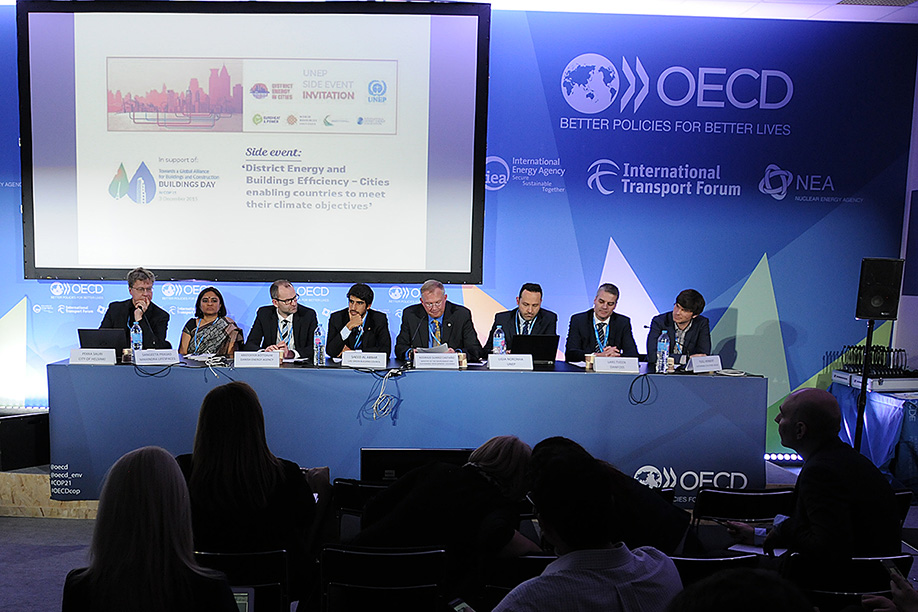 Panel (L-R):
Pekka Sauri, Deputy Mayor, Helsinki, Finland; Sangeeta Prasad, CEO - Integrated Cities and Industrial Clusters, Mahindra Lifespaces; Kristoffer Böttzauw, Deputy Director General, Danish Energy Agency; Saeed Al Abbar, CEO, UAE Green Building Council; Clay Nesler, Johnson Controls; Jose Manuel Sandoval, Colombian Low Carbon Development Strategy; Lars Tveen, President, Danfoss Heating; and Yuill Herbert, Director and Founder, Sustainability Solutions Group.
Panel (L-R):
Pekka Sauri, Deputy Mayor, Helsinki, Finland; Sangeeta Prasad, CEO - Integrated Cities and Industrial Clusters, Mahindra Lifespaces; Kristoffer Böttzauw, Deputy Director General, Danish Energy Agency; Saeed Al Abbar, CEO, UAE Green Building Council; Clay Nesler, Johnson Controls; Jose Manuel Sandoval, Colombian Low Carbon Development Strategy; Lars Tveen, President, Danfoss Heating; and Yuill Herbert, Director and Founder, Sustainability Solutions Group.
|
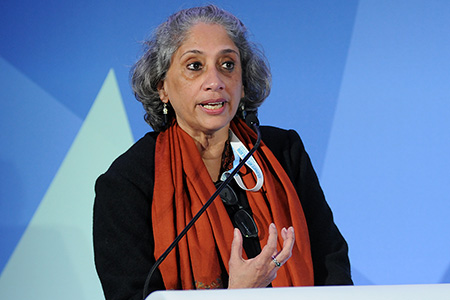 Ligia Noronha, UNEP, said we should consider links between sciences in approaches to cities, to connect social and environmental research with architecture and building work.
Ligia Noronha, UNEP, said we should consider links between sciences in approaches to cities, to connect social and environmental research with architecture and building work.
| 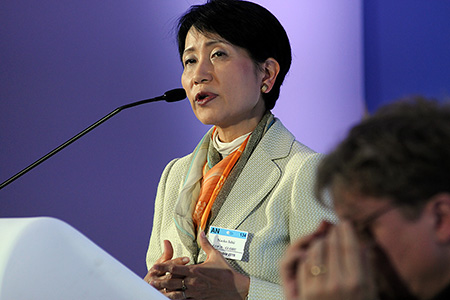 Naoko Ishii, CEO, GEF, called for further collaboration to realize the potential of the building sector.
Naoko Ishii, CEO, GEF, called for further collaboration to realize the potential of the building sector.
|
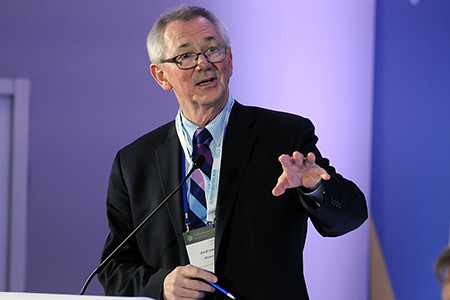 Andrew Steer, President and CEO, World Resources Institute, suggested further work on partnerships to scale up research coming out of WRI.
Andrew Steer, President and CEO, World Resources Institute, suggested further work on partnerships to scale up research coming out of WRI.
| 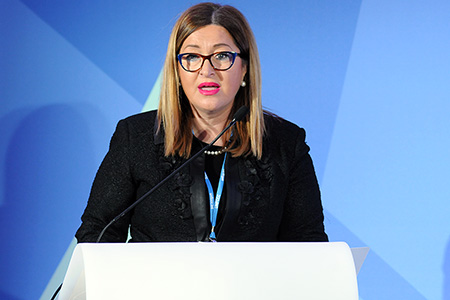 Stana Božović, State Secretary, Ministry of Agriculture and Environmental Protection, Serbia, underscored the implementation of programmes to make energy efficiency an integral part of training in architecture and engineering.
Stana Božović, State Secretary, Ministry of Agriculture and Environmental Protection, Serbia, underscored the implementation of programmes to make energy efficiency an integral part of training in architecture and engineering.
|
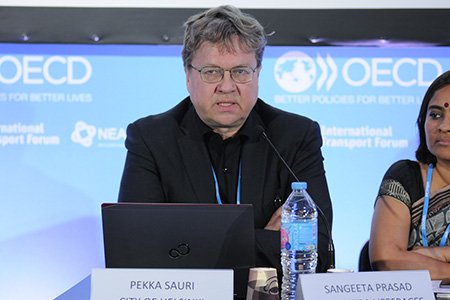 Pekka Sauri, Deputy Mayor, Helsinki, Finland
Pekka Sauri, Deputy Mayor, Helsinki, Finland
| 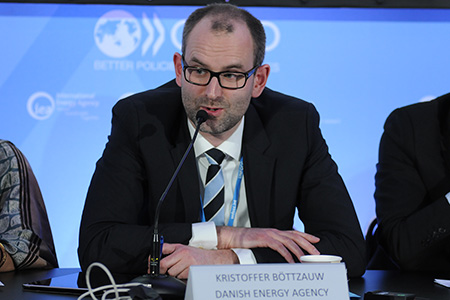 Kristoffer Böttzauw, Deputy Director General, Danish Energy Agency
Kristoffer Böttzauw, Deputy Director General, Danish Energy Agency
|
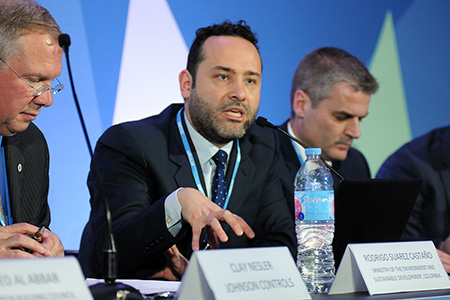 Jose Manuel Sandoval, Colombian Low Carbon Development Strategy
Jose Manuel Sandoval, Colombian Low Carbon Development Strategy
| 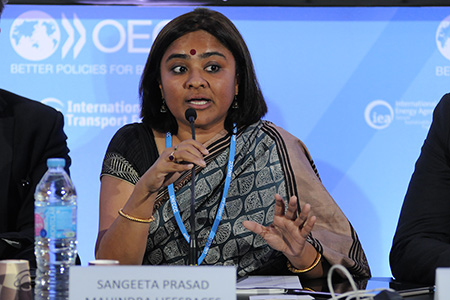 Sangeeta Prasad, CEO - Integrated Cities and Industrial Clusters, Mahindra Lifespaces
Sangeeta Prasad, CEO - Integrated Cities and Industrial Clusters, Mahindra Lifespaces
|
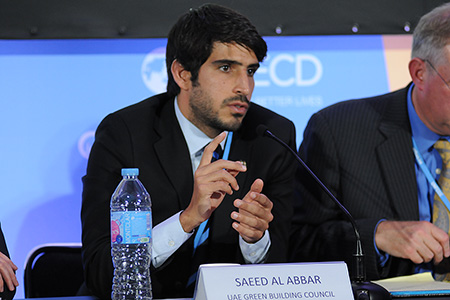 Saeed Al Abbar, CEO, UAE Green Building Council
Saeed Al Abbar, CEO, UAE Green Building Council
| 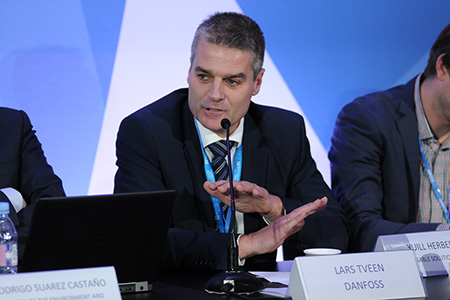 Lars Tveen, President, Danfoss Heating
Lars Tveen, President, Danfoss Heating
|
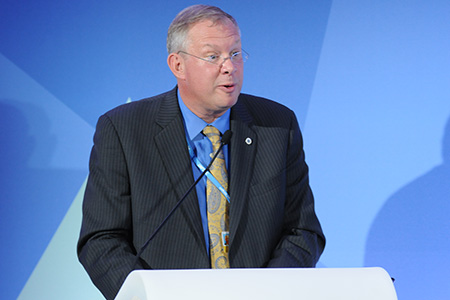 Clay Nesler, Johnson Controls
Clay Nesler, Johnson Controls
| 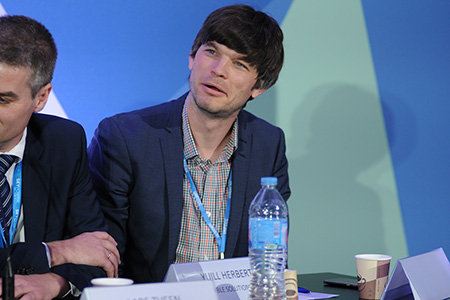 Yuill Herbert, Director and Founder, Sustainability Solutions Group
Yuill Herbert, Director and Founder, Sustainability Solutions Group
|
has been provided by the United Nations Environment Programme (UNEP)
